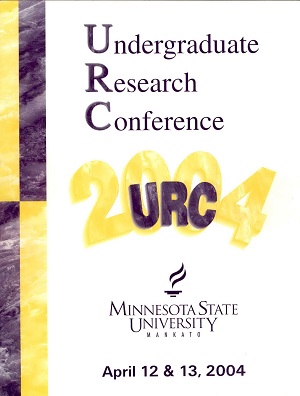Investigating Changing Moral Boundaries Through Tattooing
Location
CSU 253
Start Date
13-4-2004 8:45 AM
End Date
13-4-2004 10:15 AM
Student's Major
Sociology and Corrections
Student's College
Social and Behavioral Sciences
Mentor's Name
Tom Schmid
Mentor's Department
Sociology and Corrections
Mentor's College
Social and Behavioral Sciences
Description
This study examines undergoing tattooing as a basis for understanding moral passage. Moral passage occurs when a social act undergoes a transformation from an undesirable or deviant act, to one that is generally tolerated or accepted by the greater society. Interviews were conducted with individuals who have undergone tattooing, and their experiences and encounters with others in social settings were documented and analyzed. Results indicate that while individuals often undergo tattooing because of their attraction to its deviant connotations, many of these same individuals do not identify themselves as deviant. At the same time, persons with tattoos typically find toleration and even encouragement from others, but many remain hesitant to reveal the presence of their tattoos in certain social situations. These and other findings indicate that the moral boundaries of tattooing vary along familial, subcultural, situational, and other dimensions; and those individuals with tattoos therefore find themselves in interactions on both the conventional and the deviant sides of these moral boundaries; and that these interactions can themselves work to alter the moral boundaries.
Investigating Changing Moral Boundaries Through Tattooing
CSU 253
This study examines undergoing tattooing as a basis for understanding moral passage. Moral passage occurs when a social act undergoes a transformation from an undesirable or deviant act, to one that is generally tolerated or accepted by the greater society. Interviews were conducted with individuals who have undergone tattooing, and their experiences and encounters with others in social settings were documented and analyzed. Results indicate that while individuals often undergo tattooing because of their attraction to its deviant connotations, many of these same individuals do not identify themselves as deviant. At the same time, persons with tattoos typically find toleration and even encouragement from others, but many remain hesitant to reveal the presence of their tattoos in certain social situations. These and other findings indicate that the moral boundaries of tattooing vary along familial, subcultural, situational, and other dimensions; and those individuals with tattoos therefore find themselves in interactions on both the conventional and the deviant sides of these moral boundaries; and that these interactions can themselves work to alter the moral boundaries.




